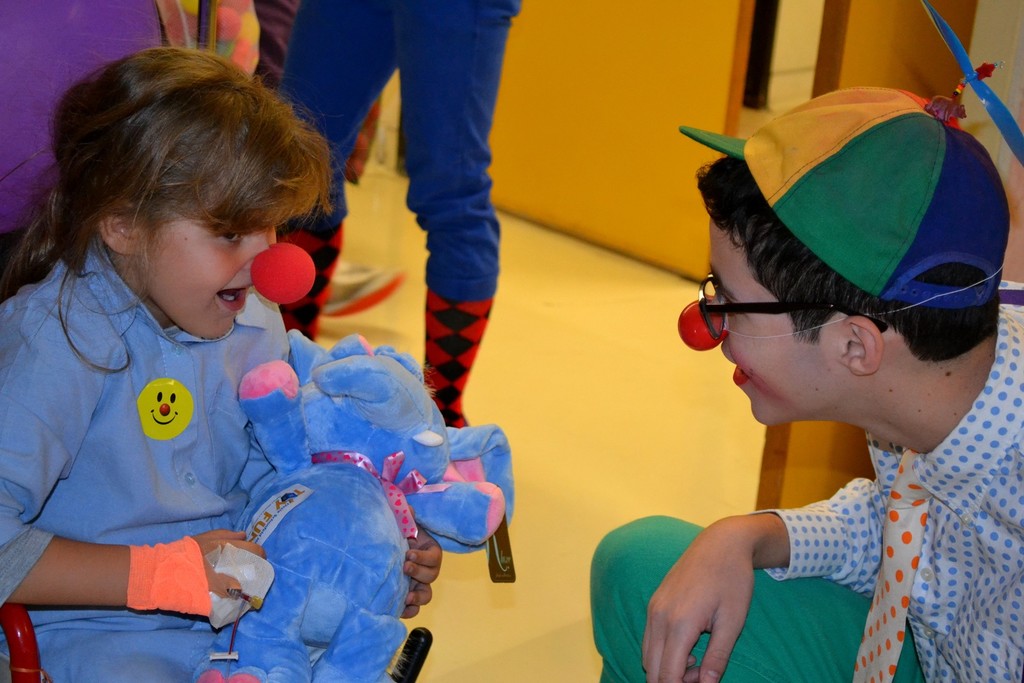Bedside clown can be great medicine
Although doctors cannot promise miracles, there is mounting evidence that a regimen of laughter — applied pragmatically in diverse settings — can heal.
Dr. Neal Goldberg, founder and executive director of Lawrence-based Lev Leytzan (Hebrew for “Heart of a Clown”), has helped train nearly 1,000 medical clowns — some are volunteers as young as 12, others are paid professionals — since he founded the organization in 2003.
Initially, the focus was to “work with Jewish youths in our community and expose them to the greater world at large,” Goldberg says. Lev Leytzan began by taking clowns to Israel to help terror victims. The organization later added missions to Europe, where the clowns provide therapy for Holocaust survivors.
Now Goldberg is expanding his vision for medical clowning, embracing another ailing community: senior citizens.
“We’re not an entertainment troupe,” he said. “Were trying to create meaningful creative engagement with people.”
Lev Leytzan doctors and clowns recently launched a pilot geriatric patient-focused program called “ElderHearts.” The stated goal is to provide “Alzheimer’s and dementia patients with interactive experiences designed to help them reconnect with the world and alleviate the loneliness and isolation they feel.” Before tackling the most severely affected patients, however, Lev Leytzan is taking a more general approach, assessing the effectiveness of its methodology.
The clowns work in dyads. They enter only with the patient’s permission, and they allow the patient or the doctor to lead off. To establish a familiar role, the clowns wear vintage costumes and use props from the 1930s through the 1950s, artifacts that evoke rich memories.

 78.0°,
Mostly Cloudy
78.0°,
Mostly Cloudy 




